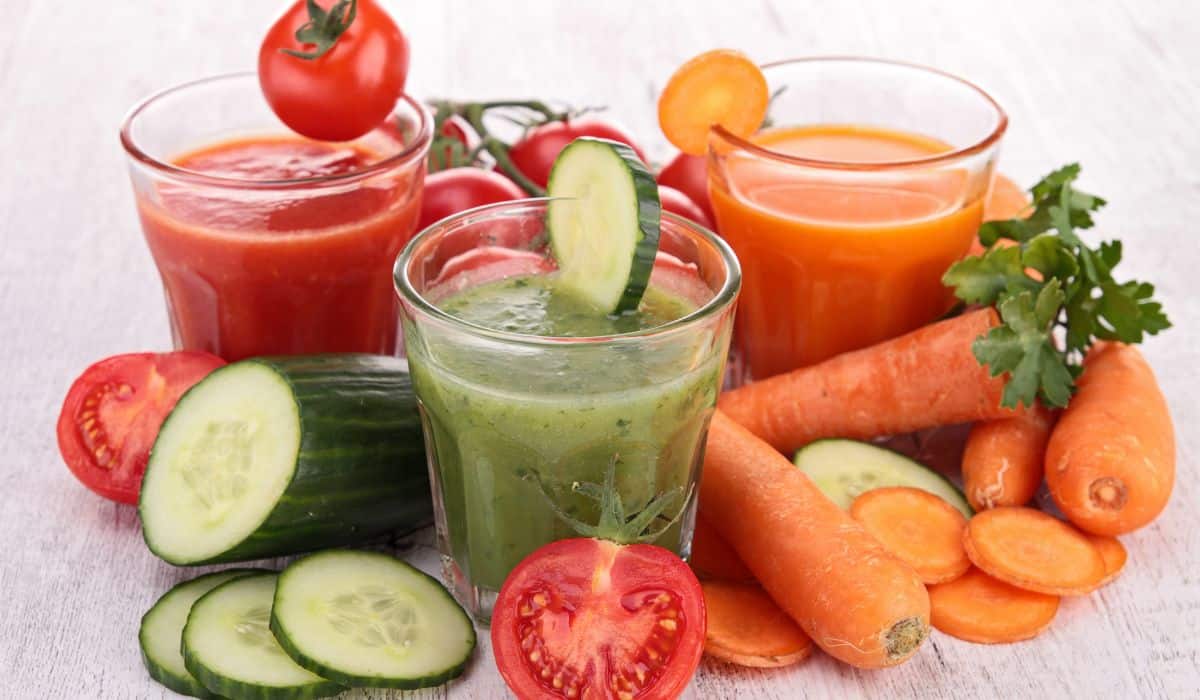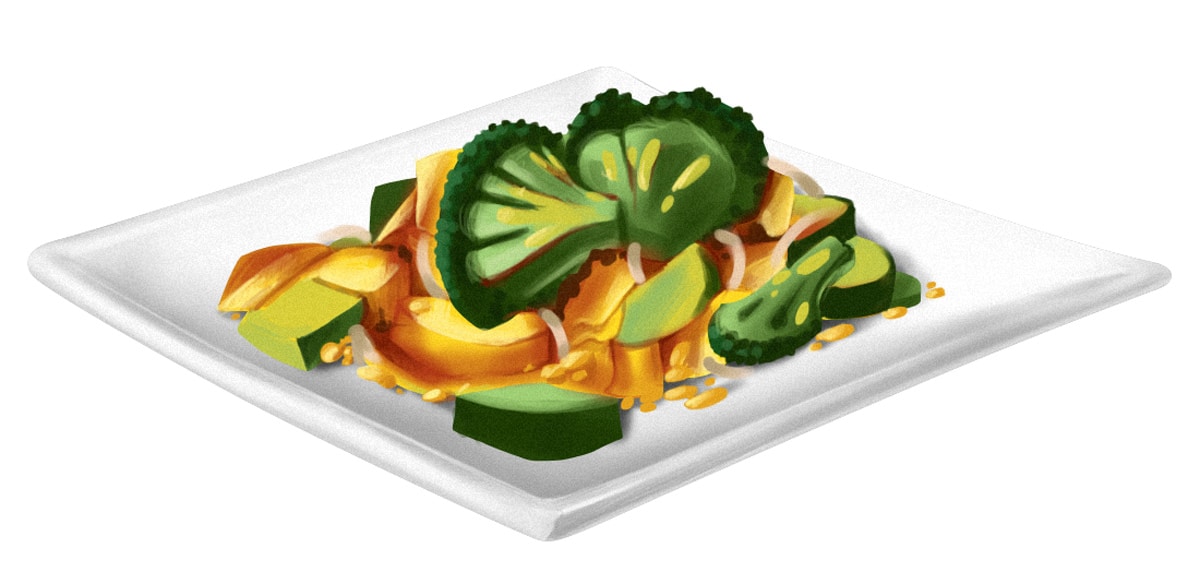If you’ve ever walked into a health-food store, you’ve probably had someone try to sell you on a cup full of liquidated carrots and wheatgrass. Maybe you bought it – or maybe you didn’t, because you already had your own juicer at home and you’d already done it yourself. Juicing is so persistently associated with health that plenty of people have tried it at one point or another. But from a Paleo perspective, is it actually beneficial?

The Paleo world is pretty down on fruit juice: even if it’s 100% “natural,” natural sugar is sugar like any other sugar, and any kind of juice makes it really easy to get a lot of sugar. But wheatgrass and other vegetable juices don’t really fall into that category. So are they more beneficial than fruit juice?
The short answer: for most people they’re not necessary and drinking juice for breakfast may be actively unhelpful for weight loss.
Nutrients and Antioxidants: More is Not Always Better
One big claim for juicing is that they’re full of vitamins and antioxidants – which is true, but there’s nothing in them that you can’t get from eating fruits and vegetables.
Some types of juices provide extremely high doses of certain nutrients, but there’s no actual evidence that megadosing on, say, Vitamin K1 will make you any healthier than just eating enough of it. Of course it’s good to get enough nutrients, but with water-soluble nutrients like B vitamins, all you’re doing is giving yourself very pricey urine, and with vitamins that do accumulate in your body, getting a huge overdose can actually be dangerous.
It’s also not clear whether there’s any benefit to getting a huge dose of antioxidants. Antioxidants are hormetic stressors, which means that more of them isn’t necessarily better, and studies have been extremely mixed as to whether supplementing with antioxidants via juicing actually provides any benefit. This study tested elite swimmers to see whether drinking fruit and vegetable juice after their workout would be beneficial. They found that…
No effect of 10-d JUICE was found on chronic resting levels or postexercise inflammation, oxidative stress, immune function, and shifts in metabolites…sprint and middle-distance swimmers…received no apparent benefit other than added nutrient intake from ingesting JUICE pre- and postworkout for 10 days.
The same was true for cyclists taking a freeze-dried juice powder: no benefit. This study found that a freeze-dried powder did improve inflammatory markers in healthy people, but the authors noted that results of previous studies were inconsistent and more importantly that the same benefits were achievable from eating fruits and vegetables.
From a Paleo perspective, it also doesn’t make any sense to drink juices as a way of “cleansing” or “flushing” your liver. Fruit juices contain a lot of fructose, which is the exact opposite of what your liver needs, and they’re low in some important nutrients that your liver does need (like selenium). If you’re interested in what really does help with liver health, you can read about it here.
If you’re already eating plenty of fresh fruits and vegetables (which you should be if you’re eating Paleo), you don’t need to add a bunch of juiced ones to the mix. The whole point of “pure” or “raw” juicing is that there’s nothing in there that isn’t in fruits and vegetables – which means that there’s nothing in there that isn’t in fruits and vegetables. Healthy humans can eat plenty of fruits and vegetables to satisfy their nutritional needs without having to blend them up in a juicer; there’s no additional benefit to juicing them.
Juicing and Weight Loss

But juicing is good for weight loss, right? Or so say the late-night infomercials featuring smiling people who only have one hand for their big glass of green liquid because the other hand is holding up the pants that used to fit them 50 pounds ago!
It’s true that good nutrition is important for weight loss, and there’s something to the idea that micronutrient deficiencies are involved in obesity. But read the section above: you can get that from food.
So if you’re adding juices to vegetable-rich meals, there’s really no point. But that’s not what most juicing weight-loss programs do; most of them have you drink juices instead of meals, typically instead of breakfast. And for weight loss specifically, there’s a reason why you might not want to do that: fiber.
Fiber helps increase the feeling of fullness after a meal without adding a huge amount of extra calories. It’s technically an “indigestible” carbohydrate, meaning that you can’t digest it, but your gut flora can. Juicing removes the fiber from fruits and vegetables, which reduces their ability to make you feel full and satisfied with your meal, and also changes their effects on the gut biome by removing the prebiotic fiber that your gut flora need.
So drinking your vegetables for breakfast instead of eating them may not keep you full until lunch, and it might also make those vegetables less helpful for restoring or maintaining healthy gut flora. Since healthy gut flora are so important for regulating weight, this could potentially be a real issue. Juice also has no protein and no fat, and for hormonal reasons, it can sometimes be very helpful to eat protein in the morning.
As for a “juice cleanse” where you drink nothing but juice for all three meals a day is essentially a very nutrient-dense crash diet. Fasting can be Paleo, but if you’re drinking a few hundred calories of juice every day, you’re not even really getting the benefits of fasting, and you’re also not learning a healthy way of eating that you can keep up in the long run.
Exceptions
The big exception to this rule is for people who somehow can’t eat fruits and vegetables any other way. This might be you if…
- You’ve had bariatric surgery and need to restrict the volume of your meals to very tiny amounts.
- You have a gut flora overgrowth or another problem that makes you intolerant of most fibrous vegetables. In this case, reducing the fiber load is actually a benefit, not a drawback.
If you can’t eat fibrous vegetables for some reason, then juicing might be a good alternative – but if you can eat vegetables, there’s no real reason why you should add juice to a vegetable-rich diet, or replace some of your actual food with juicing.





Leave a Reply